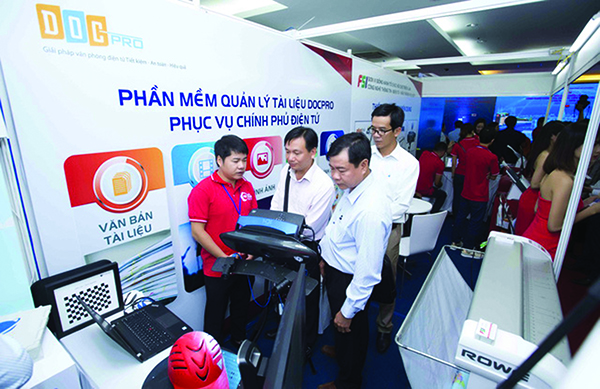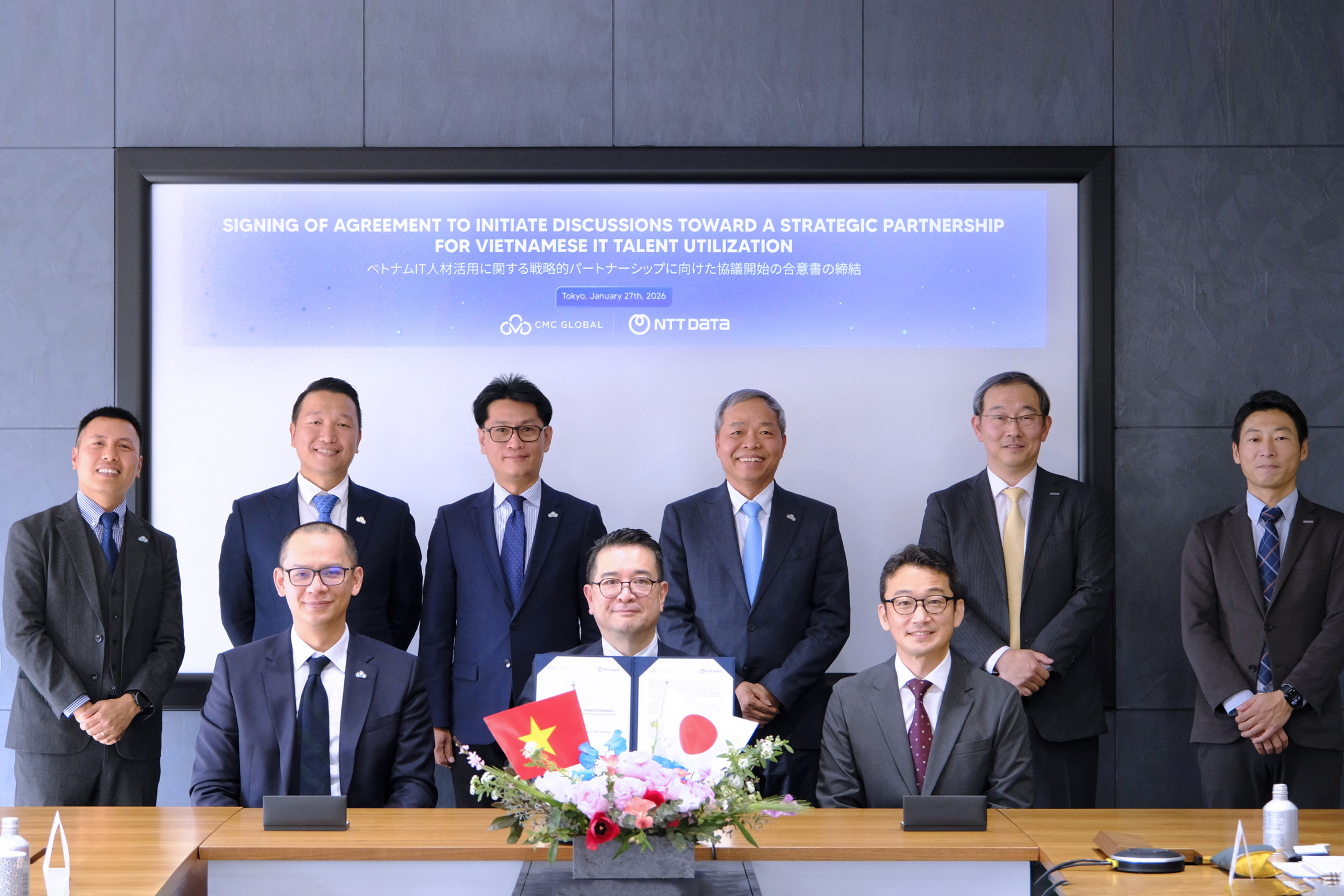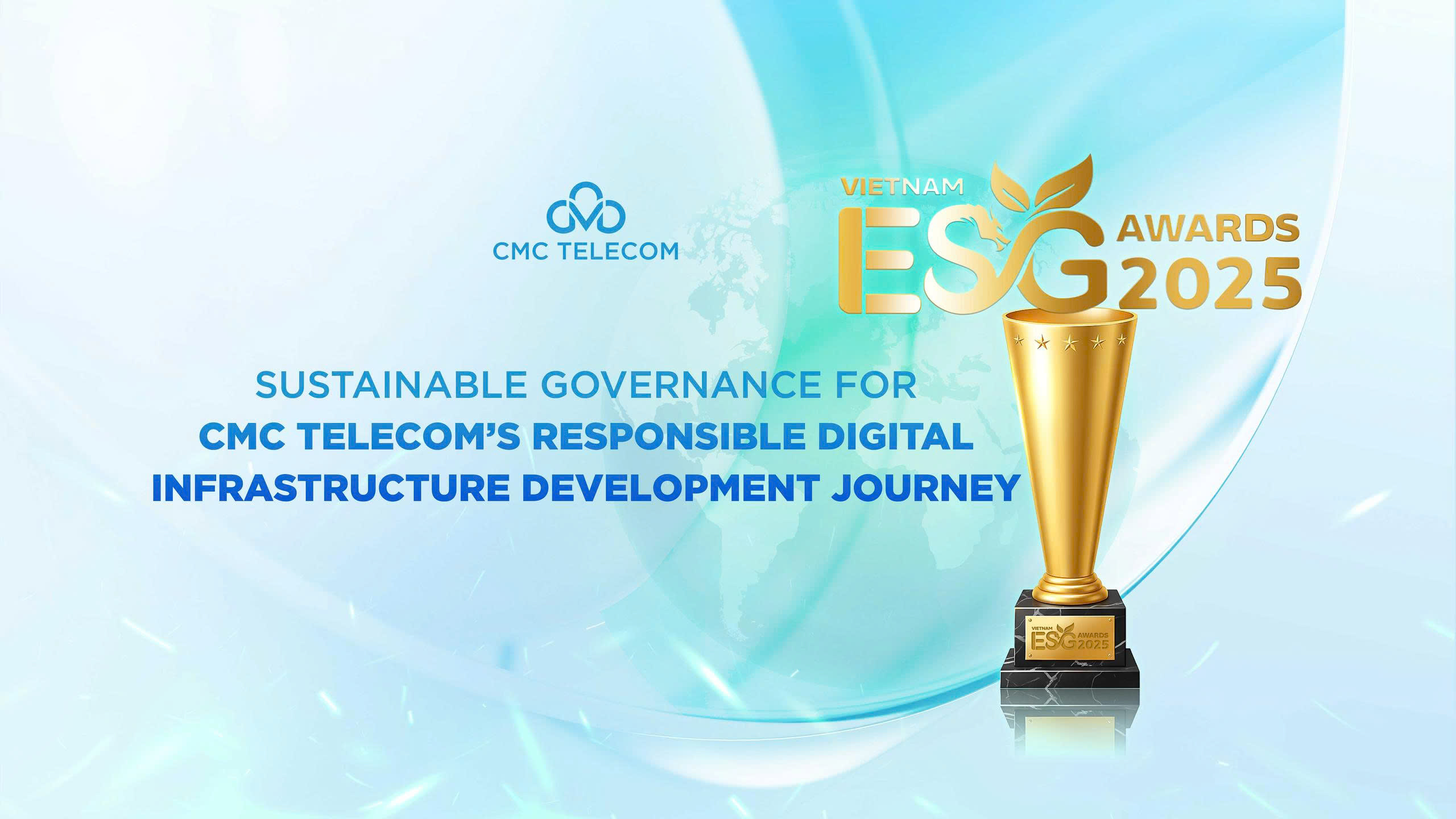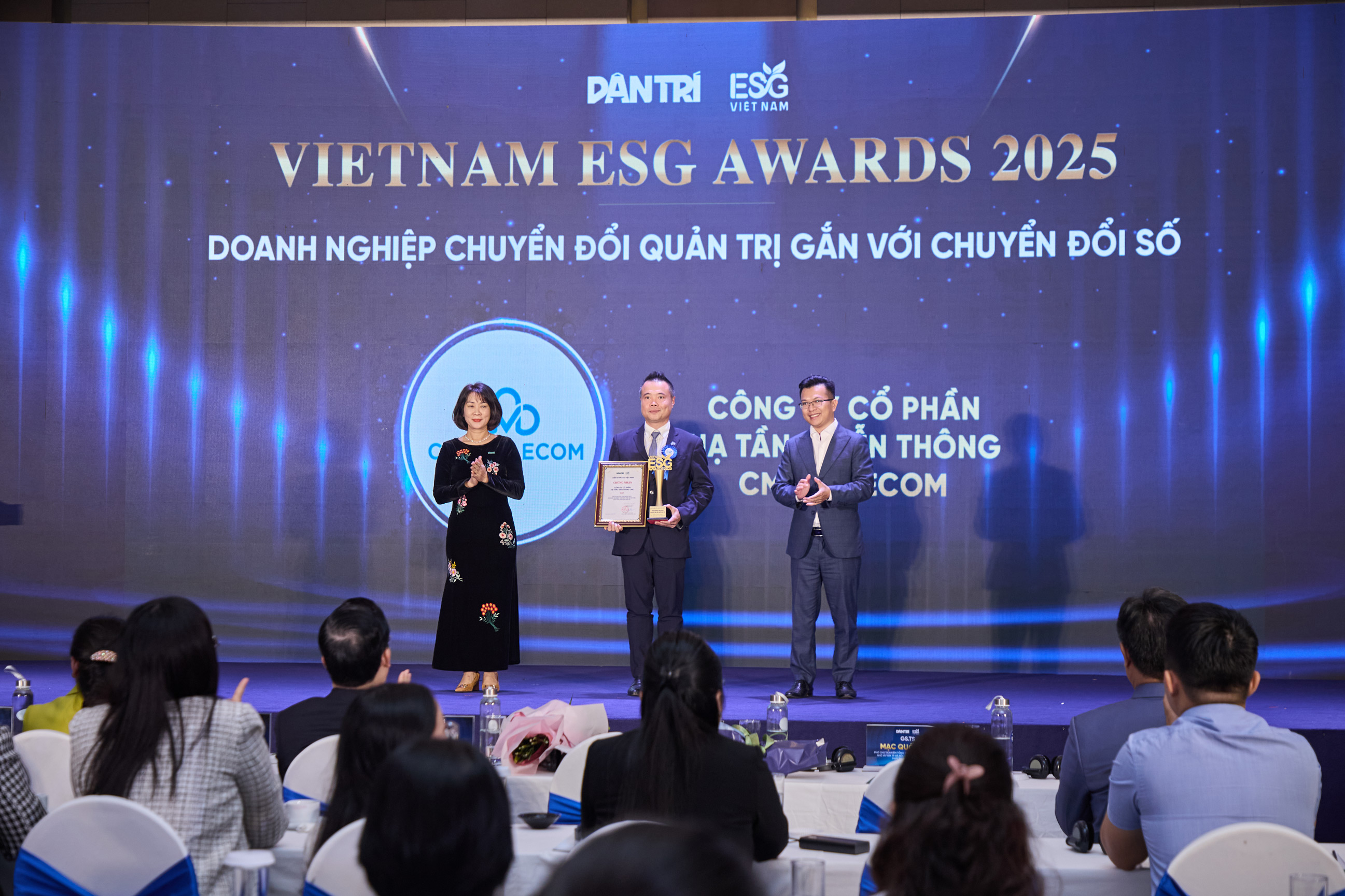“Removing Barriers” for the digital economy
[ENTERNEWS.VN] Not only the lack of strategy development, legal barriers, the discrimination is the impact hinder economic growth numbers.
While 1.7% of Vietnam’s population working in the field of economy has created 5% of national income and per capita income levels, the increased value per employee in this sector higher 3 times the national average.

Solution DocPro digitization of FSI in IT exhibition – Electronics – Telecommunications HCMC 2017
Leveling and fair
E-commerce in Vietnam in 2016 reached 900 million, up 50% compared to 2015, is estimated to reach 5 billion US dollars in 2020, an increase of 54% / year. It is estimated that by 2020, Vietnam has 60 million smartphone users, accounting for 60% of the population, an increase of 30 times compared to 2010; scale online advertising market, the trend accelerated today, will increase by over 3 times, reaching 950 million dollars (390 million US dollars in 2016).
Mr. Nguyen Trung Chinh – Chairman of Working Group Digital Economy (VPSF), Chairman of the Board of Management (BoM) CMC Group – said the emergence of the trend of “digitizing” in all areas of commerce, rods accounting for the transportation, education, health … help open up many opportunities to participate in the digital economy of the company to operate to expand the market not only in Vietnam but also provides services in the area. However, Vietnam still has no specific policy mechanisms for enterprises (companies) new business models and create the favorable conditions for enterprises engaged digital economy. Besides, there are many barriers need to be removed soon.
For example, as reported by the World Economic Forum (WEF), broadband infrastructure development of Vietnam in the world’s lowest level. With this situation, the Government should have specific policies to attract and encourage investment. But in fact, Vietnam’s policy seems to go backwards when making a public telecommunications charges was 1.5% of revenue service without clearly Ministry bases used to calculate the fees that ; to reapply under the “leveling” with all businesses, including businesses profitable new business and investment.
According to Nguyen Trung Chinh: public utility charges in the nature of benefit sharing with the community, should encourage firms to contribute, should not be prescribed a mandatory fees.
Besides, in recent years, although the resolutions of the Party spoke very strongly about the private sector, but in fact, for the economic sector has the distinction of components. Especially, when joining the computerization program for the public sector, some projects have limited the participation of private enterprises.
Mr. Nguyen Trung Chinh sharing: Every time you wake up see laws, decrees and circulars are worried more new joy. Because favorable part, the remaining face many difficulties. We think that makes laws, circulars and decrees should not be taken as the number of criteria that need to prioritize quality. Many good laws but Decree worsened again a little, until the circular, then again only a “pinhole” baby baby “.
For example, Decree 102/2009 / ND-CP on management of investment in information technology applications using state budget funds, the actual implementation faced many shortcomings. The average project lasts two years, many projects remain unfinished after three years of preparation, making the investors are forced to circumvent the rules, or shredded project to the spleen …
Human weakness
Not only entangled in policy mechanisms that important factor promoting economic development of which is high-quality human resources. CareerOne’s report said that the IT sector’s needs are at the highest level in history, with nearly 15,000 jobs in 2016 were recruited.
According to the forecast, compared with the needs of the end of 2018, Vietnam will lack around 70,000 IT manpower. 2020, forecasting 500,000 IT manpower shortage. Weak human quality so after admission, the enterprises must be retrained, it typically takes a year.
Prime Minister Nguyen Xuan Phuc said that the digital economy is a new issue for Vietnam, therefore, the ministries concerned should facilitate the monitoring practice for businesses to apply technological revolution 4.0 in water . Not pessimistic about the revolutionary 4.0 because there are many potential advantages, but need clarification see the advantages, the opportunities and challenges what is new can join this revolution succeed.
 |
Mr. Nguyen Thanh Hung, Deputy Minister of Information and Communications: Ready and solve existing businesses.
The construction and maintenance of public telecommunications fund is one of the basic policies to the success of the approach of telecommunications services in remote areas. However, since the site requires businesses closed, the current 3% to 1.5% fell. On the basis of recommendations to consider reducing the burden on enterprises, the Ministry of Information and Communication is to report and asked the Government to amend allow adjusting the recovery rate from 1.5% to 0.7%. Can not ignore public telecommunications charges because the content is performing public utility, should have funds to implement the program for remote areas. |
 |
Mr. Bui Quang Ngoc – Vice Chairman of FPT: Should public utility waste
Currently, telecommunications companies are commercial rights fee (0.5% / revenue) and expenses of public telecommunications (1.5% / revenue) in funds under management MIC and used as “a neck bifocal “. The Internet is connecting infrastructure of the digital economy, the cultural life, economic, technical, support should encourage rather than pay additional charges. I propose to waste public telecommunications, because the state public utility should be made from the state budget or social charities, not to compel companies to participate. |
Source: http://enternews.vn/go-rao-cho-kinh-te-so-114883.html
Translated by Google









